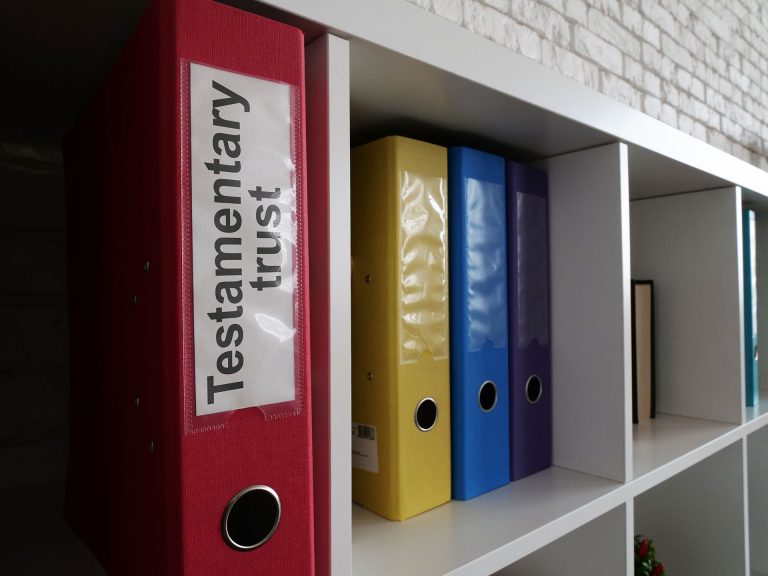All parents need wills. Most parents would do anything in their power to protect their children and would make great sacrifices to ensure their children grow to become healthy and confident adults. Yet many parents of young or teenage children never get around to making a will. This is at odds with the natural desire to protect our children, because a will is a powerful tool to ensure their protection if unforeseen tragedy hits their parents.
| Case Study: Tom Tait and Mia O’Brien are married with four young children aged 8, 5, 3 and 1. Tom and Mia are aged 38 and 37 and are both professionals who each have interests in small businesses. Tom and Mia live in a home owned by Tom’s mother Catherine, who is 62 years old. Catherine lives in a granny flat at the home, and cares for the children whilst Tom and Mia are at work. Tom and Mia have never got around to making a will. They have always been too busy and would really prefer not think about such morbid things. |
What are the problems if parents die without a will?
If Tom and Mia both die in an accident, the questions and difficulties which may arise in relation to the children include:
- Who should they live with? Who should make the decisions which Tom and Mia would normally make for the children (such as where they live, where they go to school, what they are allowed to do and so on)?
- A will can specify who is to be guardian of the children if both Tom and Mia die. That choice is binding and the person appointed can take on the full care of the children.
- But without that choice having been made, there could be disputes within the family about who should care for the children. Catherine might feel that she should continue to care for them as she has been doing, but Mia’s brother Max, sister Louise or parents Joe and Isobel may feel that their side of the family is better able to care for the children.Why cause that issue for the families, and worse the children, to have to confront at the worst possible moment!
- To what extent should the children’s inheritance be used before they turn 18, for things like ensuring that their guardian is not out of pocket, providing the children with the opportunity to travel or payment of private school fees?
- A will can be used to give guidance about such things or at least to give a general power to the executor to advance money for these purposes. Without the power in the will, the ability to do so is more limited.
- Who should administer the estate and manage the money for the children until they turn 18?
- Again, there could be disagreement within the two sides of the family as to who should do so.
- It is possible that a government authority may be appointed if there is no clear person best able to act in this capacity. This would lead to increased fees and extra delay. Management of the finances by an institution rather than a family member who is closely involved in the children’s lives, may be less than ideal.
- In making a will, Tom and Mia can choose who is to be the executor and therefore who will manage the money for the children and can choose what benefits they are to receive before they turn the specified age.
- Will the children be mature enough to manage a large amount of money when they turn 18?
- Without a will, the children become fully entitled to their share of the estate as soon as they turn 18. Most people recognise that an 18 year old is not mature enough to handle hundreds of thousands of dollars (or more).
- In making a will, Tom and Mia can specify that the children cannot receive their inheritance until they turn a more appropriate age (such as 21 or 25). (In the meantime the money is managed by the executor and made available for their day to day living expenses, education, health needs and for such things as trips, sports and the like. The executor can also choose to release money for a deposit on a home or to purchase a motor vehicle, if the child is mature enough and they think it worthwhile).
Who should be guardian of the children?
This is a difficult question, to which there is no black and white answer.
| Tom and Mia’s first inclination may be to appoint Catherine, as she cares for the children currently and lives with them. However they should consider Catherine’s age. Although she is currently not elderly and is in good health, by the time the youngest child turns 16 she will be 78 years old. Will she then be able to cope with a vivacious teenager, and able to guide teenage children through the challenges of life?They should consider whether it would be better to appoint somebody closer in age to themselves, such as Mia’s brother Max or sister Louise (or a very close family friend), who might be better able to deal with the challenges of a growing child and teenager. Tom and Mia should consider the current relationship between the children and the person they consider appointing and ask themselves how the children would feel about this person becoming their substitute parent. They should consider whether they are confident that the person, and their spouse or partner and children, will provide a stable home environment and will respect Tom and Mia’s wishes for care and upbringing of their children. Tom and Mia should also consider whether the guardian of the children should be the same person as the executor of their will should they both die. If the same person holds both roles, they would be holding the purse strings (of the children’s inheritances) and at the same time be the person suggesting potentially large payments for the care and the support of the children. |
For example, a guardian might request money to enable them to buy a bigger car or extend their home, to cater for the additional children taken into their family. Or they may request money to take the whole family including Tom and Mia’s children on an overseas holiday. If the wrong person holds these roles, there is the potential to dip into the inheritance for the benefit not only of Tom and Mia’s children but of themselves and their other family. Having a different person holding the purse strings can act as a counterweight to this risk. Accepting the many challenges that come with parenting means it is important not to shy away from uncomfortable situations, especially if it relates to the good of the children. The conversations required to make and put in place decisions, which will protect and nurture the children should both parents die, are crucial.
Don’t put off making your wills.
WHAT NEXT?
Our estate planning lawyers can assist you with the design and implementation of an estate plan. Working together to establish or update this plan will give you and your family peace of mind.











